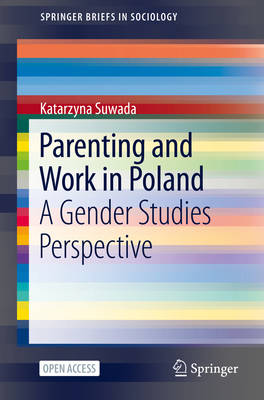
- Retrait gratuit dans votre magasin Club
- 7.000.000 titres dans notre catalogue
- Payer en toute sécurité
- Toujours un magasin près de chez vous
- Retrait gratuit dans votre magasin Club
- 7.000.0000 titres dans notre catalogue
- Payer en toute sécurité
- Toujours un magasin près de chez vous
Description
The open access book provides a critical account of parenthood in Polish society. It uses a qualitative perspective to show how mothers and fathers engage with parenthood and also function in the labour market. Parenting in contemporary Poland is not only affected by individual preferences and choices, but significantly by the institutional context, in particular the family policy system, as well as socio-cultural norms of how men and women should fulfill parental roles. The author distinguishes between different kinds of work done in connection to parenthood and shows how the existing institutional system reinforces gender and other forms of social inequalities even in a post-communist state like Poland. The author demonstrates that Polish society has different expectations and institutional norms related to work and gender norms compared to those in long-standing democracies in Europe and elsewhere. The book also shows that the experiences of parenthood in Poland are different between men and women, between single and coupled parents, and based on economic and other resources. This book is of interest to social science students and researchers of family studies, parenting, sociology of work, and social structure in post-communist societies.
Spécifications
Parties prenantes
- Auteur(s) :
- Editeur:
Contenu
- Nombre de pages :
- 107
- Langue:
- Anglais
- Collection :
Caractéristiques
- EAN:
- 9783030663025
- Date de parution :
- 08-01-21
- Format:
- Livre broché
- Format numérique:
- Trade paperback (VS)
- Dimensions :
- 156 mm x 234 mm
- Poids :
- 185 g

Les avis
Nous publions uniquement les avis qui respectent les conditions requises. Consultez nos conditions pour les avis.






